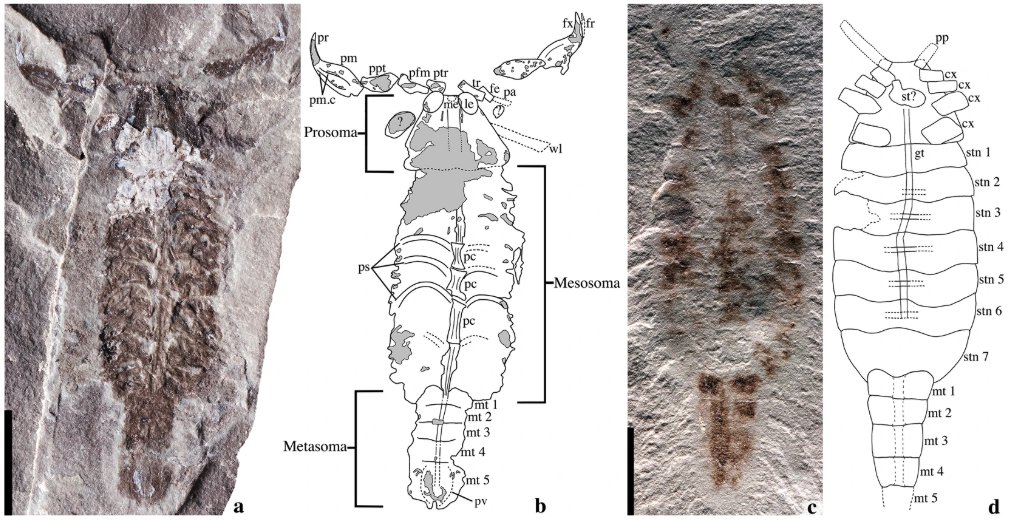‘Oldest known’ scorpion—100% scorpion

c: Modern scorpion (male Hadogenes troglodytes) for comparison. Scale bars equal 1 mm for (a,b); scale bar equals 1 cm for (c).
The ‘oldest known’ species of scorpion, Parioscorpio venator, was found among the Waukesha Biota from a rock layer in Wisconsin, USA. Described as an “exceptionally preserved fossil” it is claimed to be around 437 million years old.
The research team said: “Elements of the circulatory, respiratory, and digestive systems are preserved, and they are essentially indistinguishable from those of present-day scorpions”—which exclusively breathe air.
This is not good news for evolutionists, who believe that scorpions were amongst the first animals to adapt from the sea to life on land. “Prior to this all of animal life is in the ocean,” Andrew Wendruff, one of the paper’s authors, said. “This is the beginning point of animals leaving the seas to utilize land!”
This was the point when they would have expected to see physiological changes associated with a marine-to-terrestrial transition.

There was no sign of this. Rather, it demonstrated evolutionary stasis (non-evolution) for an alleged 437 million years. In all that time there has been no change to the circulatory or respiratory systems.
The team admitted that “fundamental questions, including how and when they adapted to life on land, have been difficult to answer”.
Scorpions have always been scorpions, and these latest findings are another sting in the evolutionary tale.
- Wendruff, A.J. and 4 others, A Silurian ancestral scorpion with fossilised internal anatomy illustrating a pathway to arachnid terrestrialisation., Science Reports 10:14, 16 Jan 2020.
- Pullano, N., Terrifying fossil may be one of earliest air-breathing animals on earth; inverse.com, 16 Jan 2020.


Readers’ comments
Comments are automatically closed 14 days after publication.